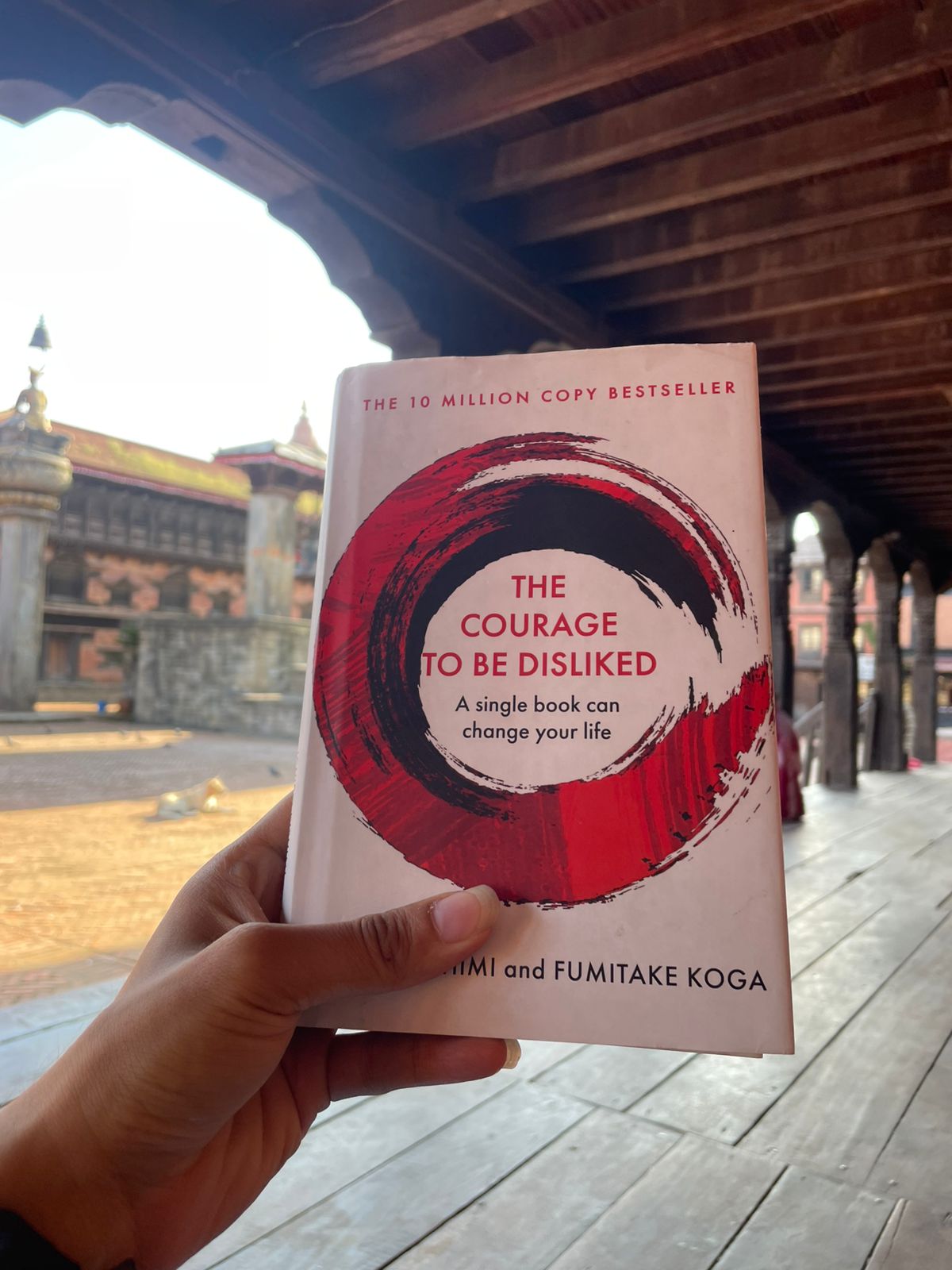
Courage is resistance to fear, mastery of fear - not absence of fear
Summary
You are not bound by the past. The present is what matters. You need courage to face life and live in the present.
Key terms
- life-lie -> Coming up with excuses in order to avoid interpersonal relationships
- felling of inferiority -> Feeling that one has no worth, or is of lesser worth. This is a normal feeling in all humans.
- inferiority complex -> Using feeling of inferiority as an excuse to be as one is i.e avoiding ones life tasks or avoiding interpersonal relationships. Eg: “I’m not well educated so I can’t succeed”.
- self acceptance -> Accepting oneself as one is.
- contribution to others -> To act on ones comrades. To attempt to contribute to ones comrades.
- life tasks -> Interpersonal relationships which are present in friendship, love, and work.
Notes
This is a theory, a story about how one can think about life. There are others theories out there too: Hinduism, Freudism etc.
All problems are interpersonal relationship problems. If you were all alone in the universe, all of your problems would go away. People try to explain their present behaviour through cause -> effect reasoning. Example: “I was bullied in school, which is why I’m an introvert.” This is wrong because all sorts of people are bullied in school and they turn out differently. Adlerian psychology thinks about the present goal of the person to explain his behaviour. “You are an introvert because you’re afraid people won’t like you if you open up”
Inorder to gain courage you need to feel you have worth. You gain worth by switching your concern from the ‘I’ to others. You must have a feeling of ‘contribution to others’, that you have comrades and that you’re of use. However this doesn’t mean ‘self sacrifice’ or ‘living for others’. You live for yourself, everybody does because it’s your life. If you have doubts about ‘contributing to others’, Adler provides the following advice: “Someone has to start. Other people might not be cooperative, but that is not connected to you. My advice is this: you should start with no regard to whether others are cooperative or not.”
Freedom is not akin to a boulder rolling down a hill, it’s the opposite you’re rolling a boulder up a hill. As long as you live life trying to appease others, living your life according to their value system instead of your own. You’ll be unhappy.
There are two objectives for behaviour:
- To become self reliant
- To live in harmony with society.
Two objectives for psychology that supports these behaviours:
- The conciousness that I have the ability
- The conciousness that people are my comrades.
These are universal and apply to all people. These objectives are related to interpersonal relationships more rather than concrete tasks like “making money”, “having an education”. Interpersonal relationships are present in all endeavors - if you feel you don’t have the ability in the “making money” endeavour, you’ll find ways to avoid facing the endeavour (not working conscientiously, complaining about your job etc). You need to cultivate the behaviours and the psychology to tackle the interpersonal relationships present in all endeavours.
One source of unhappiness is encroaching upon other people’s task, and having other people encroach upon yours. If a child needs to study but doesn’t do so, you should help him if he seeks help but you shouldn’t force him to study. Studying is the child’s task.
Impressions
I like this theory because it’s a responsible way of thinking about life. Breaking away from the past is liberating, and brings more agency. The part about “what’s the present reason the person has to act the way he’s acting?” as opposed to “what happened to him in the past that makes him act this way?” provides a better framework to judge a person’s action I think.
This book can be summarized as: “Take responsibility. Cultivate a growth mindset. Help Others”. It’s good advice, just hard to follow.
Be the heroine of your life not the victim